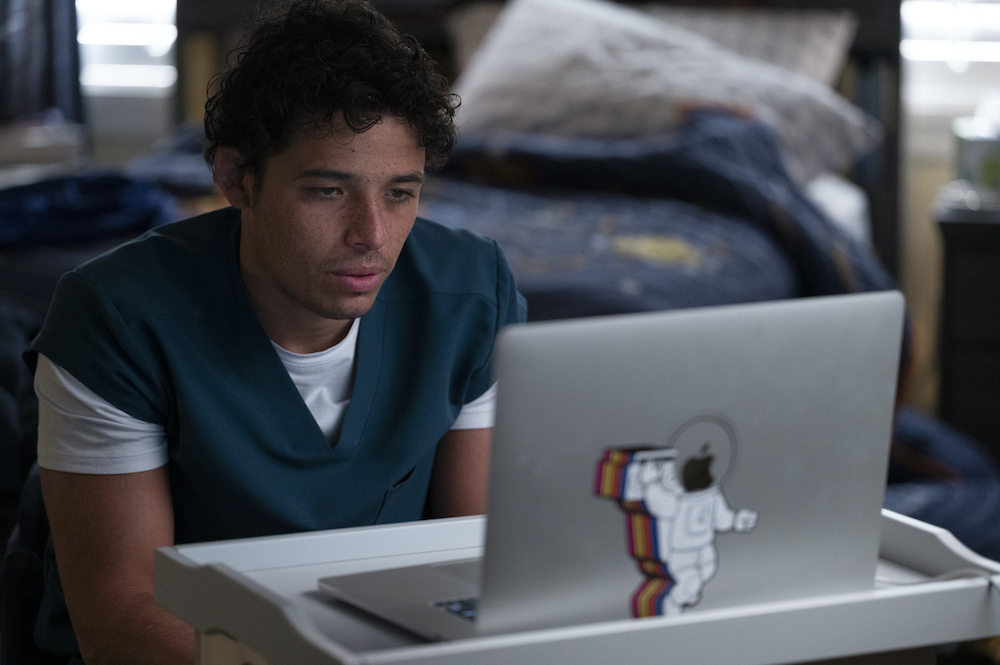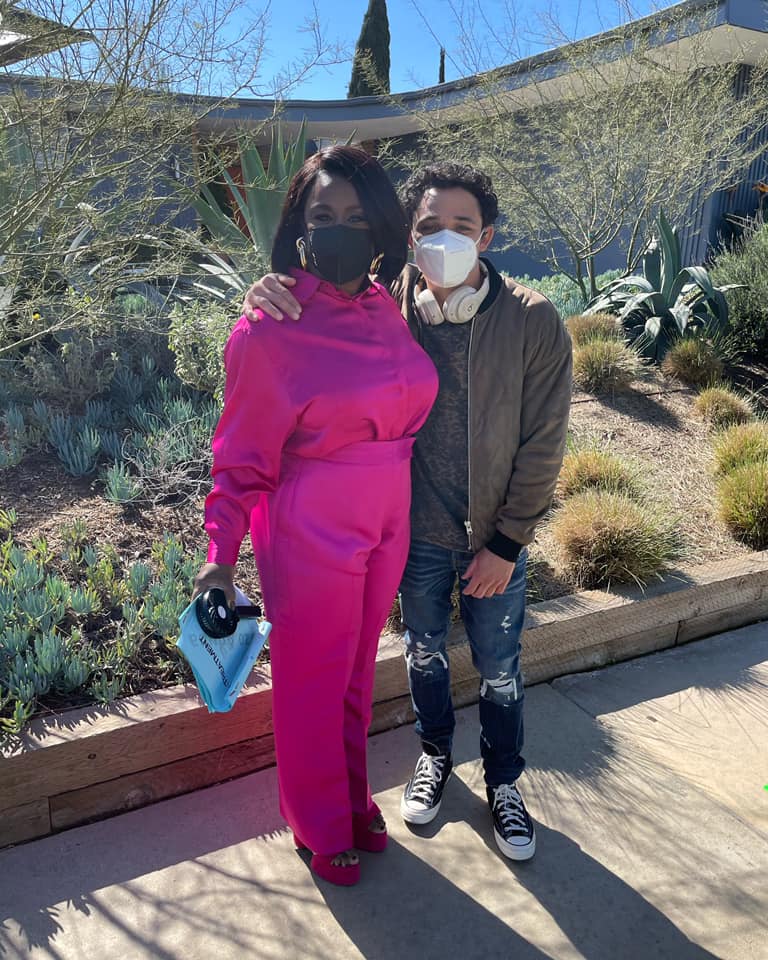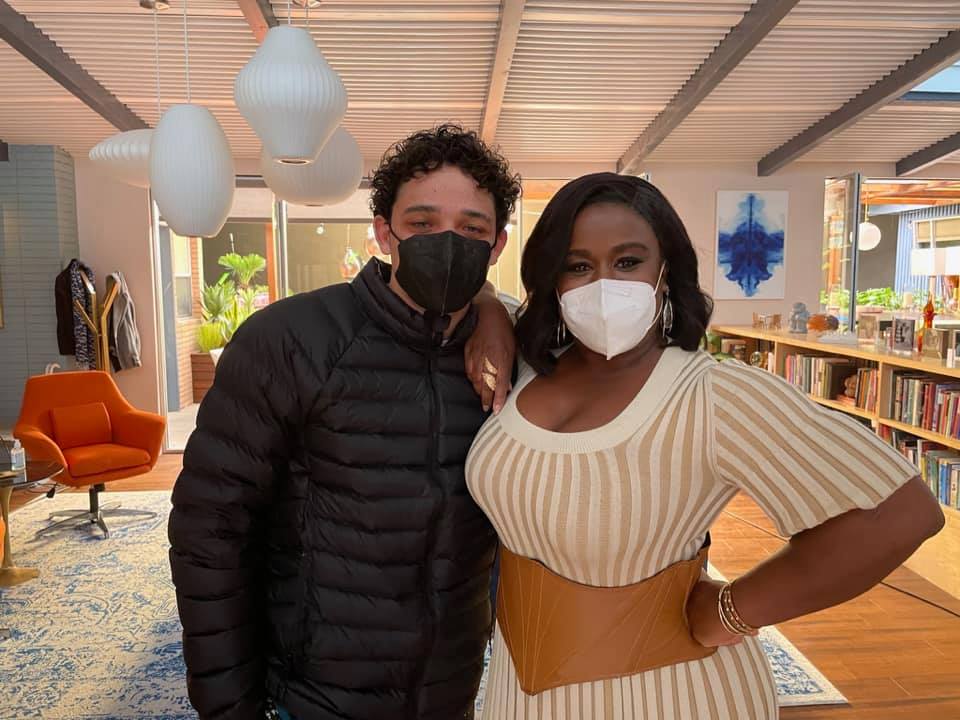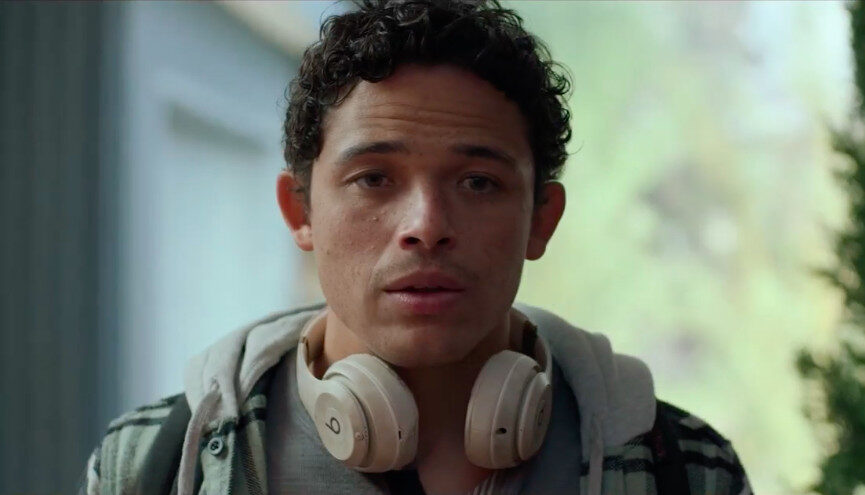
You may remember Anthony Ramos from “Hamilton” or “A Star Is Born” but this time, audiences will get to see the 29-year-old portraying lone patient Eladio to Uzo Aduba’s Dr. Brooke Taylor for “In Treatment” season 4.
Eladio works as a home health aide for Jeremy, who has an health issue that makes him high risk for Covid-19. Therefore, Eladio is stuck to conducting his therapy sessions with Dr. Brooke virtually via video conferencing software and phone calls.

“One of our writers, Chris Gobbo had a similar lived experience to the character that Anthony plays. We figured that if Eladio was going to be a home health aide in quarantine in lockdown, with his very wealthy employers, then he can’t just be walking around town going to his therapist’s office, he’s going to have to do it virtually. So it gave us an opportunity to explore what kinds of levels of connection and disconnection happened between people virtually. He’s one of the closest characters to Brooke emotionally, but yet there’s the distance because of the computer screen,” explained showrunner Josh Allen.
Read on to find out the on-screen and of-screen bond Anthony Ramos shares with Uzo Aduba and why Eladio is probably his most personal role yet.
Q: What drew you to the project and how did you feel when you read the script?
I felt like this script had a lot of depth to it. I love the show and I love this character because it just felt like there was so much conversation between two people. I’ve been going to therapy for two years now, and it’s been such a big part of my life and I’ve been doing it virtually as well. It was kind of wild that my character was the only one who had virtual sessions. I loved the challenge of this role, and of this show because this is the next step I want to take to really put myself out there in a different way. This character is layered, he deals with insomnia and abandonment. He’s living in a house with a family that really doesn’t appreciate him but he’s never really known anything better, so he’s like “I won the jackpot I can’t mess this up”. The way he speaks… he’s also well-read which is something that I love.

Q. What was it like to work with Uzo, it felt your characters have the strongest bond yet this is all over the computer?
Uzo and I knew each other in passing, we are both from New York from the theatre community, we have mutual friends, so we’ve already familiar with each other. So there was that element of comfort, I was just grateful that I could act opposite her. Uzo is such an open heart, it’s always a blessing when the star of your show is asking how you are. She was leading the charge and she has so much on her plate and she just handled it with grace and with so much professionalism. But she’s an animal, she’s so unbelievable.
We were doing our sessions all virtual at one point, but when I was in the room with her and I actually felt that energy, it was great, in real-time and in the flesh. I remember saying between takes “your power is unbelievable”. It’s one thing to do this the way we were doing this behind the screen but it’s another thing to just be in the room, that was crazy.
Q. How important was it for you to bring your Puerto Rican heritage to this series?
My character is written as Colombian but there’s a lot of similarities between different Latino cultures but at the same time, there are differences. With Eladio, I play a character that felt similar to the people I grew up within New York and that for me was dope.
I had a friend who was helping me with lines and she was like, “Yo, bro, this sounds like this part was waiting for you”, it totally wasn’t but the role just fit me like a glove. It was important that he was Latino and I felt that his vernacular was dope. Sometimes we hear characters with a similar vernacular but writers who aren’t from where I am from will write them down, for example, usually, he won’t be as intelligent as the next character or as well-read.
But Eladio is cool. He’s very articulate. And I love that this show shines a light on and gives the world an insight to see that, just because we are from the hood, doesn’t mean we can’t express ourselves.
Q. How much of a version of yourself, do you see in the character that you played?
A lot. There’s a stigma around therapy especially in the Latin community, specifically Hispanics. It was funny I even said to someone in my family I was going to therapy. They said, “What’s wrong?”… a lot is wrong. But that’s the thing with therapy when you go people make you feel like “there’s something wrong with you” but isn’t there something wrong with us all? I’m grateful that this stigma is breaking and this show can really shine a light on the fact that therapy is for everybody.

Q. What was your favourite element or part of the show?
I mean, honestly. Uzo. She is incredibly amazing and there was this comfort level on set that she created. Just good vibes, we just know we’re going to get it done and it’s going to be fire.
Also, my favourite element was being able to get into dialogue the way we did on this show. My favourite monologues are in the second episode, where Eladio goes off. He understands what the therapist is doing. He isn’t stupid. He is like “I’m the help in this house, you think I don’t know? I don’t want to be cleaning the pool, I’m here to take care of Jeremy. But they are only paying me 12 dollars an hour but it’s the only thing I am good at”. I loved being able to dig into this character and really peel back the layers to this and making discoveries as we were filming.
Q. How did you prepare for this role?
I think the preparation was actually what I had already been going through. Sometimes Eladio makes reference to significant writers, so I would research who the writers were. I’d also looked up what do people with insomnia do, then it made me realise “wait do I have insomnia?”.
I think the main thing was reminding myself that this guy’s not a person, he is “communicative” and very good to a certain extent. It’s almost like a picture, and he puts this amazing picture up on this doorway to distract you from the fact there’s a doorway into the real deep stuff that he doesn’t want to talk about. But you get so caught up with the paintings and how beautifully articulate he is, that you wouldn’t even think that there was a doorway and there’s other stuff that was happening to him.

Q. There were so many amazing, and integral topics explored in this show – racism, white privilege, ignorance, grief, sexuality and sexism. Why do you think that was important?
I think that’s important because of issues that we don’t want to talk about especially in our homes. I love when Quintessa comes in with her grandmother. Her Grandma’s going off and you can see the rebellion in Quintessa and the reluctance of her even wanting to communicate because she already knows she’s going to be faced with somebody that’s going to judge. But at the same time, you can see the pain that someone might feel when they can’t actually express themselves completely and truthfully and honestly. They feel like they will be judged 1,000% before they even finish their sentence.
I think all of those topics sexism, racism, all of that, all the topics that we cover in this show. I love it because this is all real. That’s why I feel like it’s so important for people sitting across from each other, being completely vulnerable as they possibly can be.
Q. What do you think people will gain while watching this?
I hope they gain the confidence to find a therapist and actually put in the work. It’s hard, the first therapist might not be the right fit. For example, you go to a gym, and you may not like that particular gym but you’ll find the right one for you. The same goes here, sometimes you might have to meet two, three people before you find the right therapist you vibe with.
But once you start digging in and that’s the real work, stick with it. Number two is really allowing yourself to get vulnerable enough where you can really get to the bottom of what’s going on with you.
I love that with this show, there are four characters and the main character who is helping these patients is also getting help in the fourth episode, that’s often the person you think doesn’t need help. I just hope that people find a support system where they can talk about the hard stuff that they’ve gone through in their lives and really find the courage and the due diligence to put in the work as it is work and it hurts.
Catch “In Treatment” on HBO GO and HBO (Astro Ch 411 HD) with two back-to-back, half-hour episodes each Monday and Tuesday night at 10pm.
The post Interview: Anthony Ramos On Seeing With Himself In His “In Treatment” Character appeared first on Hype Malaysia.
0 Comments